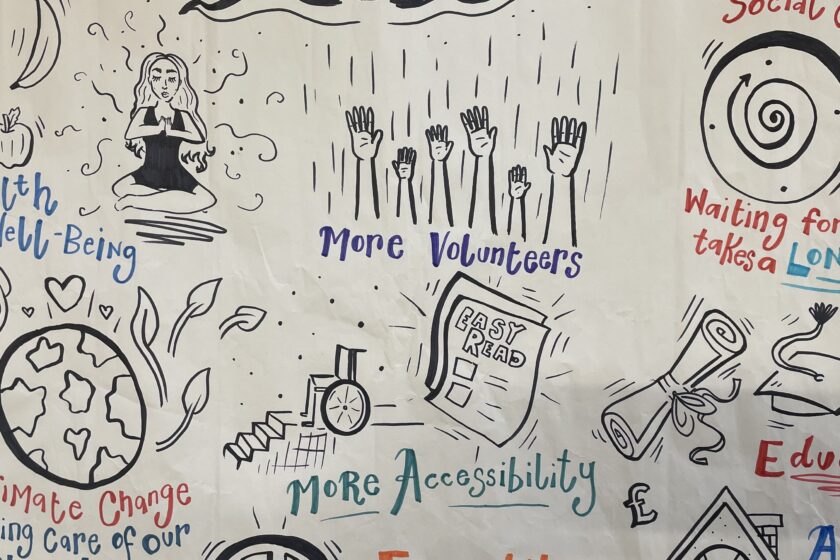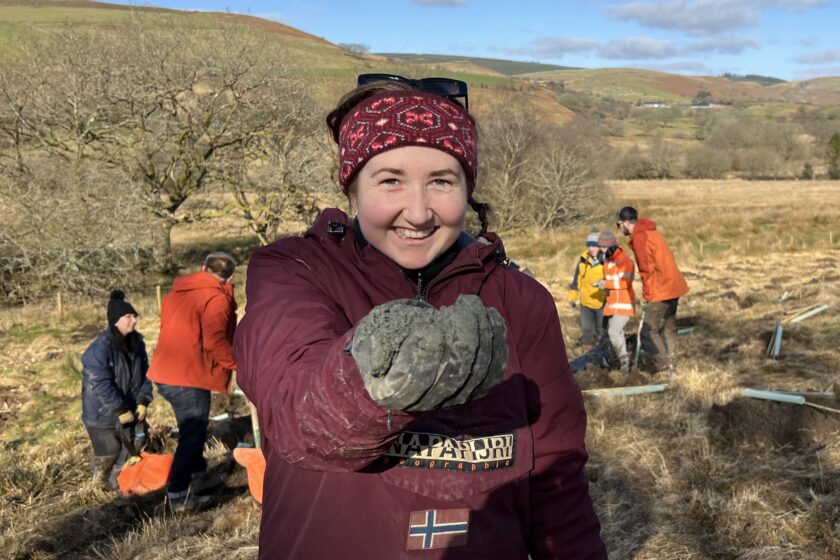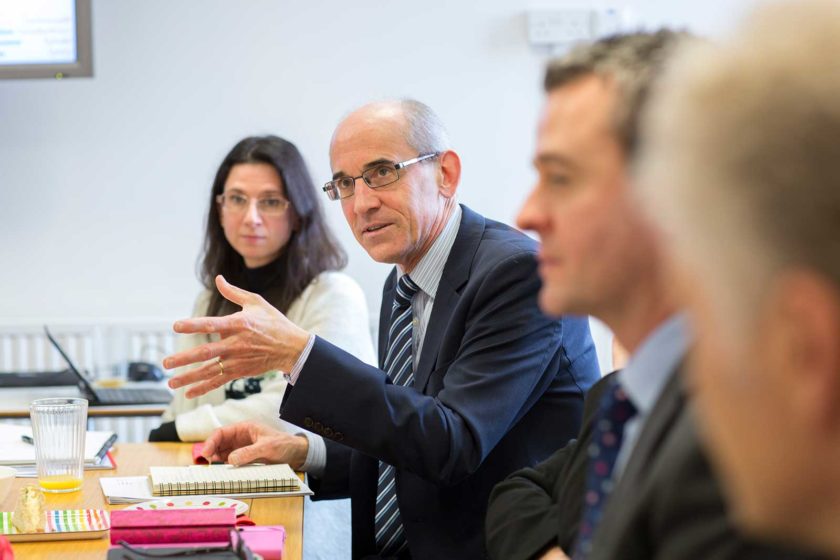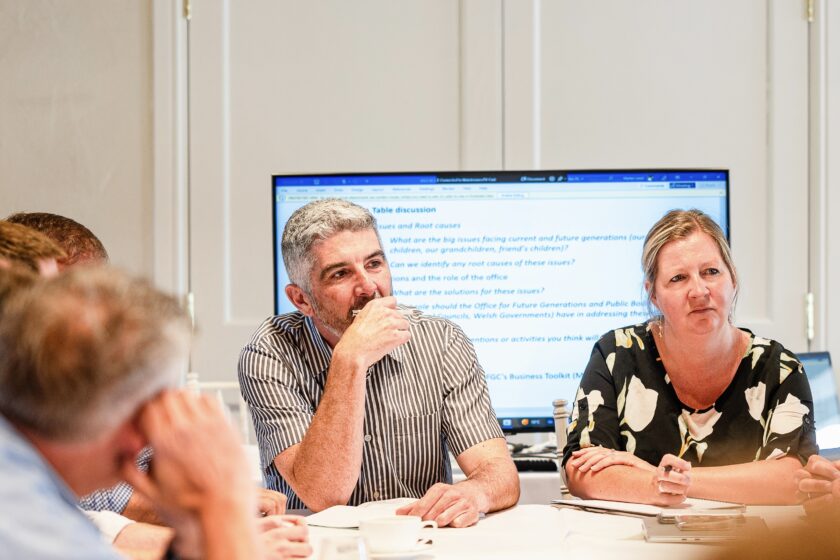Monitoring and Assessing
Under the Act, the general duty of the Future Generations Commissioner includes monitoring and assessing the extent to which well-being objectives set by public bodies are being met. In simple terms, this means watching and judging the progress of public bodies in meeting their objectives.
The Commissioner’s role also includes supporting public bodies through highlighting best practice and encouraging collaboration. For more information on the Commissioner’s role, read our FAQs here.
Some of the monitoring and assessing work we have undertaken to date include:
-
Working closely with the Auditor General for Wales
Working closely with the Auditor General for Wales
We work closely with the Auditor General for Wales, who has a complementary duty under the Act, and are currently finalising a new Memorandum of Understanding.
The Auditor General must undertake at least one examination in each public body in a five-year period. The examination seeks to find out the extent to which the public body has used the sustainable development principle and five ways of working in setting their well-being objectives and taking steps to meet them.
The complementary nature of our functions, in addition to the ethos of the legislation (integration, collaboration and involvement in particular) means we work closely together to seek to align our functions. It is paramount to us that we do not send conflicting messages to public bodies and that we pull together in the same direction to drive the deep and right changes towards the Wales we want.
You can find more information on their work, including examinations on public bodies, on their website here.
You can also read the Auditor General for Wales’ 2020 report here which complements our Future Generations Report 2020.
-
Welsh Government implementing the Act review – 2022
Welsh Government implementing the Act review – 2022
In 2022, the Commissioner used their Section 20 powers under the Act to review how the Welsh Government implements the Well-being of Future Generations Act.
In line with the ways of working, we worked collaboratively with the First Minister and Welsh Government on this work which enabled us to identify the areas which require improvements and the good practice that should be amplified.
You can find our findings and full report on our website here.
-
Analysing PSBs draft well-being assessments – 2022
Analysing PSBs draft well-being assessments – 2022
Between January and April 2022, our team provided individual feedback to the 14 PSBs on their draft well-being assessments. We published our findings in a report available here.
-
Procuring well-being in Wales review - 2020
Procuring well-being in Wales review - 2020
In collaboration with Cardiff University, in May 2020 the Commissioner used their Section 20 powers under the Act to review the extent to which the Act has informed public bodies’ procurement decisions.
You can find our findings and full report here.
-
Future Generations Report – 2020
Future Generations Report – 2020
Every five years, the Commissioner must publish an overall assessment and recommendations for improvement in a Future Generations Report.
Our monitoring and assessing of public bodies’ progress underpinned many of the recommendations in our Future Generations Report 2020.
The next Future Generations Report will be published in 2025.
-
Self-reflection and progress towards the Act – 2019
Self-reflection and progress towards the Act – 2019
In 2018/19, we developed a methodology in collaboration with the public bodies based on self-reflection and peer review.
A self-reflection tool was completed by each public body and, following a period of shared learning with other public bodies, we provided detailed individualised advice to each public body on how to improve both the content of the objectives and to meet them quicker and better.
The overall findings of this exercise were published in December 2019 in a report ‘Progress towards the Well-being of Future Generations Act’ and can be summarised as:
- There are some excellent examples of innovation that the Act is bringing about across Wales. However, public bodies need to consider and present a more coherent picture of how the organisation is collectively maximising its contribution to the seven national well-being goals.
- The Welsh Government has not sufficiently resourced the implementation of the Act.
- Progress is being made towards meeting well- being objectives in some areas, but there is variation in how public bodies apply the Act.
- More progress and pace are needed in the corporate areas for change.
- The quality of objectives and steps set in 2017- 18 did not always meet the aspirations and the requirements of the Act.
-
Analysing PSBs draft well-being assessments – 2017
Analysing PSBs draft well-being assessments – 2017
Working in partnership with Cardiff University, Netherwood Sustainable Futures and Mark Lang Consulting, we reviewed Public Services Boards’ first draft well-being assessments.
We worked to identify areas where good progress was being made in applying the five ways of working and addressing the key challenges and opportunities going forward.
Our ‘Well-being in Wales: Planning today for a better tomorrow’ report highlights the challenges and opportunities for the future, driven by the need to change the way we deliver public services in Wales following the publication of well-being assessments published by the 19 Public Services Boards across Wales.
You can read the Commissioner’s individual feedback to each of the 19 PSBs draft well-being assessments here.
-
Analysing public bodies’ first well-being objectives – 2017/18
Analysing public bodies’ first well-being objectives – 2017/18
In April 2017, public bodies across Wales covered by the Act were required to publish their well-being objectives and steps for the first time, showing how they will improve the social, environmental, economic and cultural well-being of Wales and contribute to the seven national well-being goals.
Our team analysed the collective 345 well-being objectives and the many more steps underpinning them to understand the common themes emerging and advise on how public bodies should accelerate the pace of change.
We published these findings, advising public bodies on how they should also fulfil their duty to report annually on progress towards their well-being objectives in our report Well-being in Wales: the journey so far.





















